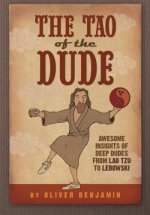theBaron
Major
- Joined
- Mar 27, 2008
- Messages
- 10,536
Brad, Prange relied heavily on Fuchida's accounts in regards to the Japanese POV, in many matters. Prange spent many hours in personal face to face interviews and took Fuchhida at face value. Fuchida aparently embellished his accounts and did his best to make his interviewers happy by telling them what he thought they might want to hear. This has lead to the widely different accounts that Prange and Fuchida published compared to 'Shattered Sword'. 'Shattered Sword' was a game changer for the history of Midway. -- Al
Yep, I know. I liked the way Parshall and Tully described Fuchida as getting his story out first, when the occupation censorship was relaxed, and basically daring anyone to challenge him. And when P&T first reached out to Japanese writers to ask about Fuchida, they were very circumspect. They didn't want to be seen as attacking an honored and respected veteran. The response they got was pretty much, "Oh? You still believe Fuchida? He was refuted years ago. That's amusing!"
Prost!
Brad



